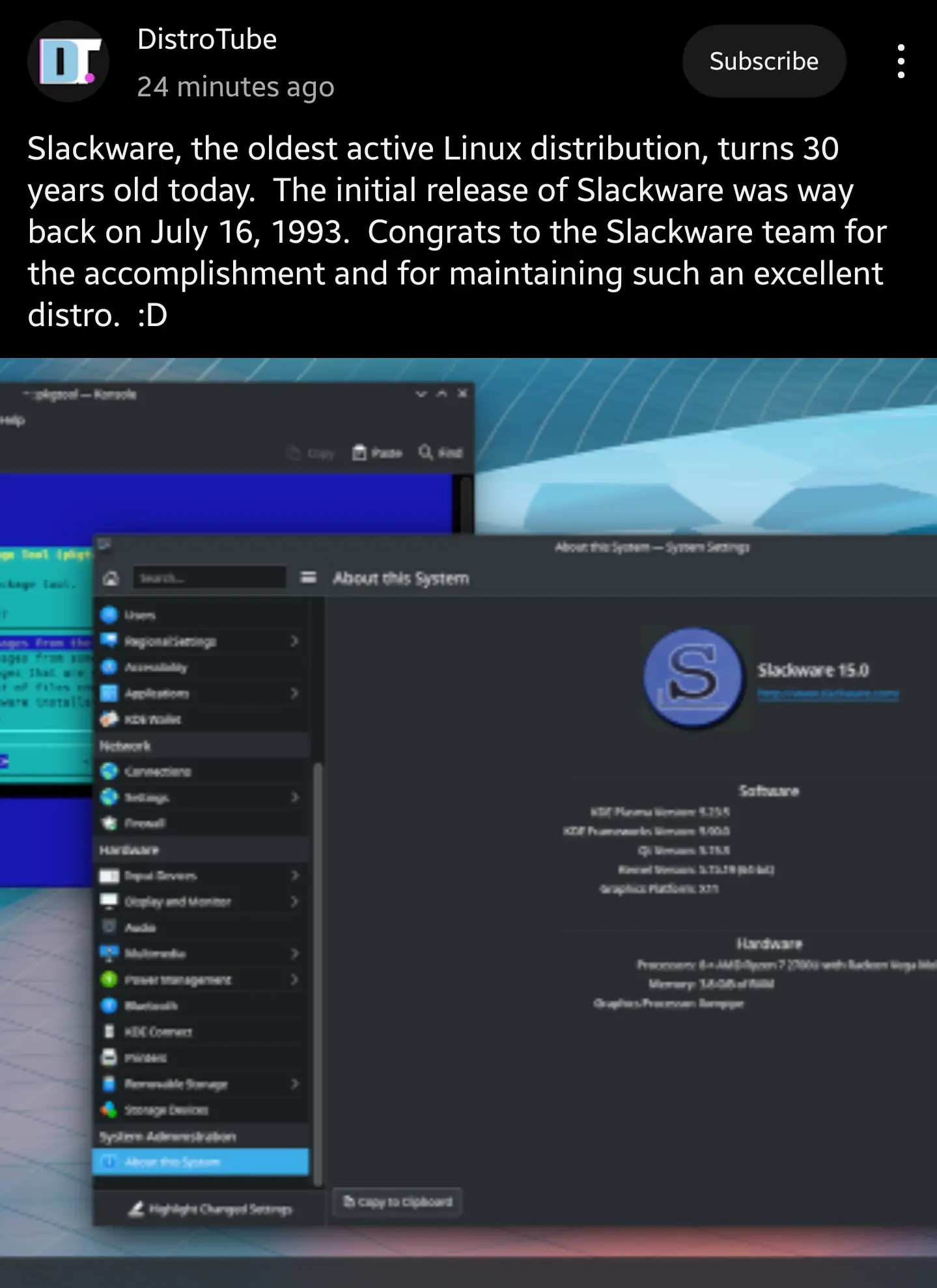Slackware turns 30 today
Slackware turns 30 today


Slackware turns 30 today


You're viewing a single thread.
It is so nostalgic, although I struggle to see a good reason to use this as a daily driver other than if you need stability that might even exceed that of Debian Stable.
I need some tips on how the old-timers manage installation of packages without dependency management.
This is probably one the most Unix-like Linux-based operating systems ever. Gentoo probably comes next with Void being third in said list. If one didn't want to run BSD but still wanted similarities with old Unix systems, this is probably it.
Thanks to the Slackware team for such a fantastic distribution.
I started with Linux using Slackware in the late 90s. I had to give up on it - first on the desktop around 2007, then on my server maybe 5 years ago. Dependency hell. For the server, the final straw was when I got some Ubiquiti equipment and needed to run the Unifi controller - I just did not want to deal with figuring out the dependencies and then worrying about them every time I updated.
The desktop and laptop run Kubuntu, and the server runs Debian. It's so nice being able to update things without having to worry. And I haven't noticed any effective difference in stability or anything like that. Just that much less time I spend maintaining things.
Sorry, Patrick!
I wonder if the UnRaid team has figured out an easier method to take care of dependencies, considering they run a webserver with considerable assets on Slackware.
Slackware will always be a consideration for me since I do not like systemd (philosophical reasoning), but yes, managing dependencies manually is a pain and said pain grows with almost every package that one installs and then needs to upgrade. I wonder what was the motivation for the Slackware team to not include automatic dependency management to their distribution, which would likely have been my choice for lean and stable distribution over Debian if it had that feature.
If i remember right, it takes a lot of resources to maintain a package manager, and the focus on slackware is to be on the improving the distro overwall hence its superb stability. Community members have created sbopkg + sbotools to create a 3rd party package manager if you want to go that route on slackware. Sbotools would be the gui to take care of depenencies
Thanks for mentioning them, I didn't know about this. Glad to know that the main focus is on the essentials
From a server point of view, where it's focused on a limited set of functions, with a limited group of packages, it's not too bad. I can see it working fine for that purpose.
But a general purpose server that does several things in my house... It gets messy.
We don't install packages without dependancy management, for the most part. We use one of the half-dozen or so pkgtools wrappers made by community members that interface with SBo and handles the dependencies for us (examples include slapt-get, slpkg, and sbotools). Also, Flatpak/Distrobox/Nix etc are all available and easy enough to install if slackbuilds.org doesn't have what I need (rare tbh).